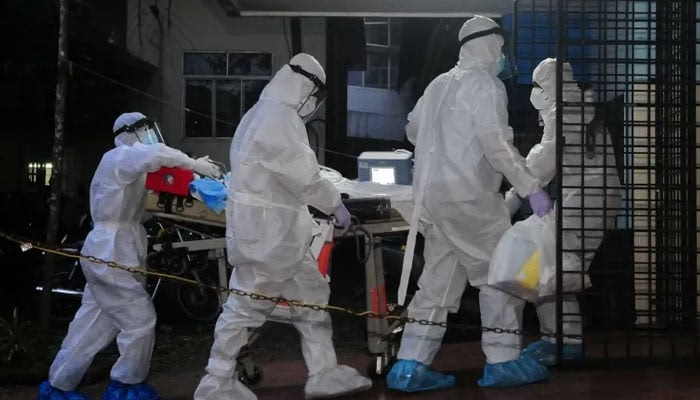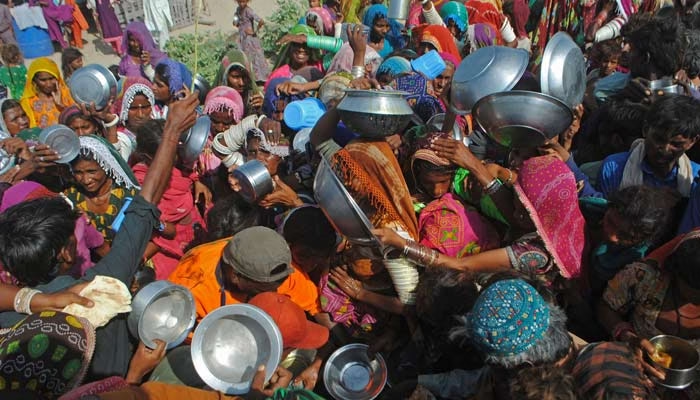A fresh case of the deadly Nipah virus has been confirmed in Kerala, India, raising fresh public health concerns in the region. On July 12, a 52-year-old man tested positive in Palakkad district, marking the tenth Nipah virus case in Kerala since 2018. This latest case has reignited fears, especially as the state continues its battle against recurring outbreaks.
Recent Surge in Nipah Virus Cases in Kerala
So far in 2025, four cases of Nipah virus have been reported in Kerala, resulting in two fatalities. All confirmed infections have been reported within a 50-kilometer radius of the border districts of Malappuram and Palakkad. In response, Kerala state authorities have issued a high alert and placed 675 individuals under medical surveillance across five districts.
This escalation has led health officials to initiate emergency containment measures, including contact tracing, mass testing, and localized lockdowns in high-risk areas.
What is Nipah Virus?
Nipah virus (NiV) is a highly infectious zoonotic virus, meaning it is transmitted from animals to humans. The virus was first discovered in 1998 during an outbreak in Malaysia. It belongs to the Henipavirus family, which also includes the Hendra virus, a similar pathogen found in Australia.
The natural reservoir of the Nipah virus is fruit bats, also known as flying foxes. These bats carry the virus without exhibiting any symptoms and can spread it to humans either directly or via intermediate hosts such as pigs or horses.
Nipah is considered one of the most dangerous viruses due to its high mortality rate, which ranges between 40% and 75%, depending on the availability and quality of healthcare.
Symptoms of Nipah Virus Infection
According to the World Health Organization (WHO), the symptoms of Nipah virus typically begin to appear 4 to 14 days after exposure. These include:
- High fever
- Severe headache
- Sore throat
- Cough and breathing difficulties
- Vomiting
- Seizures
- Brain inflammation (encephalitis)
In severe cases, the infection can rapidly progress to coma within 24 to 48 hours. Lung function may be severely affected, and multiple organ failure is also possible in advanced stages of the illness.
How Does Nipah Virus Spread?
The exact mode of transmission in the current Kerala outbreak remains unclear. However, health experts suggest multiple possibilities. One theory proposes that people are becoming infected by consuming stale or partially eaten fruits contaminated with bat saliva. Despite this, lab tests of fruits sold in Kerala have not yet detected the virus.
Recent research by the Indian Council of Medical Research (ICMR) has introduced another concern: airborne transmission. According to Dr. Thihakara Jacob John, co-author of the study and professor at Christian Medical College, Vellore, Nipah virus may behave similarly to tuberculosis (TB) by floating in the air, thereby increasing the chances of respiratory transmission.
These findings highlight the urgent need for improved public awareness and strict hygiene measures in affected regions.
Current Treatment Options and Vaccine Status
As of now, there is no approved treatment or vaccine for Nipah virus infection. Medical care focuses on supportive treatment, including:
- Hydration
- Respiratory support
- Management of neurological symptoms
- Prevention of secondary infections
The WHO has classified Nipah virus as a priority disease in its R&D Blueprint for Epidemic Preparedness, which accelerates research into diagnostics, treatment, and vaccine development. Several experimental vaccines and antiviral drugs are in early-stage development, but none are currently available for public use.
Government Response and Public Safety Measures
In light of the recent outbreak, Kerala health authorities have swiftly implemented several containment and awareness strategies, including:
- Isolation of confirmed and suspected cases
- Surveillance and contact tracing
- Distribution of protective gear in affected zones
- Public advisories against eating half-eaten fruits
- Increased monitoring of bat populations in the area
People have been advised to avoid public gatherings, refrain from visiting affected areas, and maintain strict hygiene practices to curb the spread of the virus.
Stay Vigilant, Stay Safe
The resurgence of Nipah virus in Kerala is a serious public health challenge, particularly given its high fatality rate and the lack of a definitive cure or vaccine. Vigilance, early detection, and community cooperation are crucial in controlling the spread of this deadly virus.
Health experts recommend that citizens remain cautious, follow government advisories, and avoid consuming any fruits that may have been exposed to animals. Continued surveillance and research will be vital in preventing future outbreaks.



